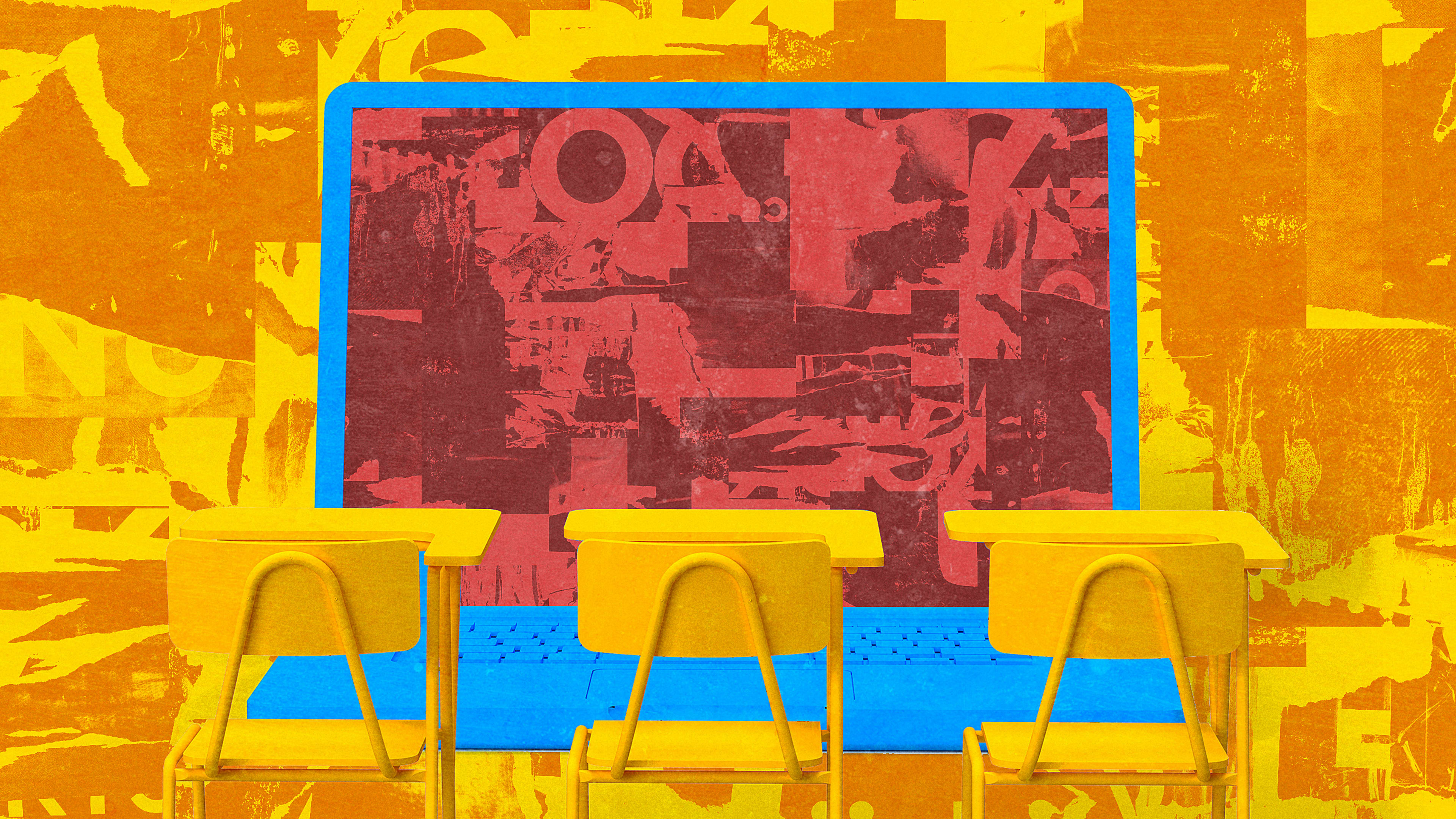As misinformation and conspiracy theories continue to proliferate online, it’s not enough that social media platforms attempt to prevent misleading content. They may never stop the deluge of disinformation, so experts have also started calling for more media literacy, teaching people how to critically assess the information they’re exposed to. According to one recent survey, just 38% of people said they learned how to analyze media messaging in high school.
That percentage is set to change for students in New Jersey who will now be required to learn media-literacy skills under new legislation signed this week by Governor Phil Murphy. The bill requires that the New Jersey Department of Education develop standards in “information literacy” for K-12 students, with the goal of helping kids find, evaluate, and “effectively use” information, learn critical-thinking skills, and differentiate between facts and opinions, and primary and secondary sources.
“Our democracy remains under sustained attack through the proliferation of disinformation that is eroding the role of truth in our political and civic discourse,” Murphy said in a statement. “It is our responsibility to ensure our nation’s future leaders are equipped with the tools necessary to identify fact from fiction.”
Misinformation has been tied to a decreasing confidence in our political system. A 2020 study, for example, found that more than 50% of white Americans believed there was voter fraud in the 2020 presidential election. Meanwhile, a 2022 poll found that only 20% of respondents feel “very confident” in the integrity of the U.S. election system.
The bill, which received bipartisan support, “isn’t about teaching kids that any specific idea is true or false,” Republican state senator Michael Testa said in a statement, “rather it’s about helping them learn how to research, evaluate, and understand the information they are presented for themselves.”
New Jersey is the first state to mandate media-literacy education, but others also have been focused on this issue. Educators in Illinois and Colorado, for example, have taken it on themselves to teach students how to fight disinformation and evaluate claims made by everyone from TikTok influencers to YouTube stars.
School librarians in New Jersey also have supported media-literacy efforts, and specifically this education bill, for years. They’ve had their jobs disappearing due to budget cuts and have seen how that has harmed students. As many as one-fifth of New Jersey school districts don’t have a certified school media specialist, the president of the New Jersey Association of School Librarians told Politico. “It is difficult enough for one person to serve a building of over 1,000 students adequately,” the president, Beth Thomas, said, “and I’m not sure what they are able to accomplish being responsible for the facilities, collections, and curricula of six buildings.”
Librarians will be part of the New Jersey effort; the bill requires that the commissioner of the Department of Education convene a committee that includes certified school library media specialists, as well as staff members, to develop the learning standards. Also, the proposed “information literacy standards” will be available for public input before they’re adopted. The governor’s office notes that the standards will be “reviewed by experts as they are developed,” though does not specify which experts. (One supporter, Olga Polites, is an adjunct instructor of composition at Rowan University and the leader of the New Jersey chapter of the nonprofit Media Literacy Now; she hired a legislative consultant for the bill, the Philadelphia Inquirer reports.) It’s still unclear exactly what the curriculum and its roll-out will look like; many adults haven’t learn media literacy skills, either.
“This signing feels especially timely as we approach the two-year anniversary of the January 6 attack on the U.S. Capitol,” said Democratic state senator Shirley Turner in a statement. “It is incredibly important that our children are taught how to discern reliable sources and recognize false information. This legislation will equip the next generation with the tools they need to spot deceptive sites and become savvy consumers of media.”
Recognize your brand’s excellence by applying to this year’s Brands That Matter Awards before the early-rate deadline, May 3.
